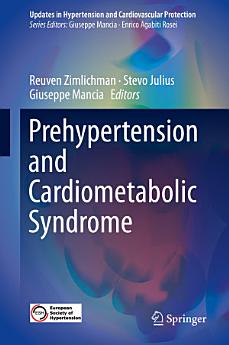Prehypertension and Cardiometabolic Syndrome
About this ebook
While the diagnostic and therapeutic approach to full-blown diabetes, hypertension, dyslipidemia and obesity is well defined, there is still a lack of clear understanding and guidelines as far as patients with borderline conditions – especially when multiple – are concerned. Moreover, end-organ damage depends on several factors, including genetic factors, making it difficult to predict its extent. As such, the gradual transition from a healthy subject to one with functional hemodynamic changes, and then one with structurally asymptomatic changes and lastly to overt disease needs further investigation.
In order to address these knowledge gaps, the book covers a broad variety of topics, making it a valuable tool for identifying which asymptomatic subjects could profit from being appropriately screened and at what stage. Furthermore it offers insights into better treating these patients to prevent their progression to overt disease. The book appeals to cardiologists, primary care physicians and all those healthcare professional looking to optimize the management of these complex and often undiagnosed cases.
About the author
Reuven Zimlichman is Chief of the Department of Medicine, Head of the Hypertension Institute at the E. Wolfson Medical Center, Israel, Director of ‘The Brunner Cardiovascular Research Institute’, Tel-Aviv University and Director of the 'Institute for Quality in Medicine', Israeli Medical Association. He is also a former Vice Dean and Head of School of the Continuing Education program at the Sackler Faculty of Medicine, Tel Aviv University. Zimlichman has published more than 200 papers, 5 books and numerous book chapters. His publications are in the fields of basic research, cell cultures, animal research and clinical research and cover clinical areas including hypertension, cardiovascular disease, metabolic syndrome, end organ damage and evaluation of arterial properties.
Giuseppe Mancia is a Professor Emeritus of the University of Milano-Bicocca and served as Professor of Medicine and Head of the First Division of Medicine at the San Gerardo Hospital, Italy. He is executive officer of the European Society of Hypertension and Chair of the ESH Educational Committee. Mancia’s research interests are focused on the pathophysiology, diagnosis and therapy of hypertension, heart failure, coronary and other cardiovascular diseases. His fields of expertise include ambulatory blood pressure monitoring, neural control of circulation, large artery mechanics, and clinical trials.






